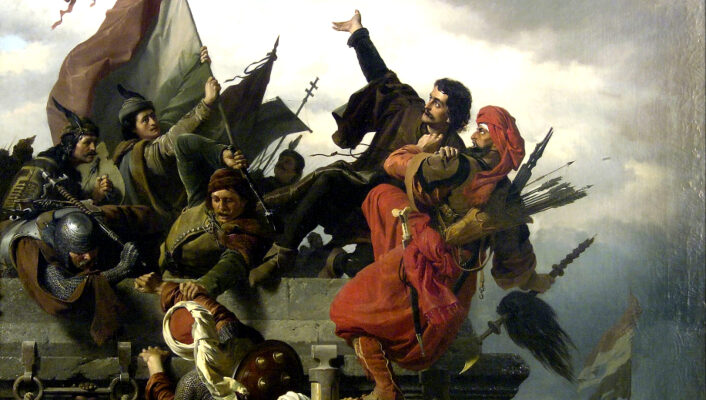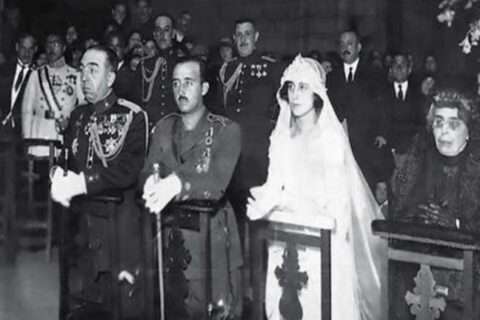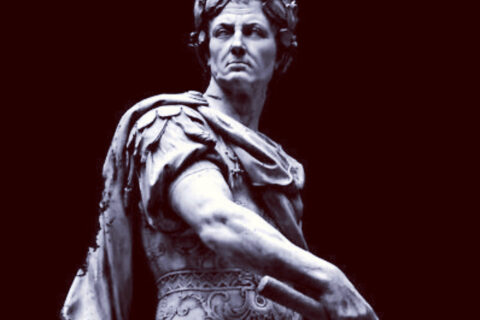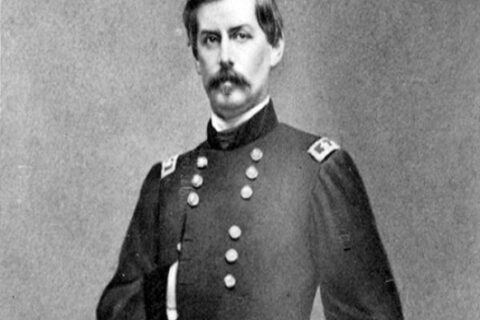Things aren’t going well, but in many times and places things weren’t going well, either. So, today I’d like to offer a rambling historical treatise.
For starters, I’m sure most of us would prefer a harrowing medieval battle to our current predicament. That’s not what we’ve got on our hands obviously, nor do I advocate violence, but still there’s inspiration and lessons to be drawn from the past. When confronted with a juncture, one should always bear in mind that there’s no deal to be made with the devil. Eventually, it won’t work out in your favor.
For example, if during the course of an Ottoman siege one finds himself confronted by the enemy standard bearer coming over the top, one could either surrender or grab the infidel and throw themselves off to their deaths. On the walls of Belgrade in 1456, Titusz Dugovics opted for the latter course of action.
We’re all going to die anyway, so he went out in a blaze of glory. It’s now being claimed that he never existed, which is how you know this heroism really happened. Such inspirational individuals are found to be problematic in our current miasma.
Mehmet II was forced to withdraw back to Constantinople, which had fallen a few years earlier. Constantine XI Palaiologos also opted for the “fight to the death” course of action, earning himself a legendary status in the Greek world, which survived until Greece became an independent country centuries later. Things can turn around, but that often takes quite a while.
Trebizond was the last free Greek city left. Mehmet II (also mostly ethnically Greek) laid siege to it in 1461. David, the final ruler, could have chosen his cousin in Constantinople’s demise. Instead, he made a deal. In exchange for surrendering and handing over much of the city’s children as slaves, he was allowed to keep his wealth and given estates further west. He sailed off to a life of luxury, and Mehmet II entered the city to turn its fabled cathedral into a mosque. The last vestige of Byzantium was over.
You can always save your own skin, right? Not really, David and his sons were decapitated as soon as an excuse could be found a couple years later. They were executed by the sword, whereas they could’ve just died honorable deaths by the sword defending their city. Everybody is going to die anyways; this world is a temporary thing.
Is it really less scary of a death to die in combat compared to having your head cut off in a dungeon? One might argue that hindsight is 20/20. That’s certainly true, but not in terms of making a deal with the devil. Everybody ought to know ahead of time that’s not ever going to work out in your favor. Just how badly will remain for you to find out personally.
The other thing one realizes from studying this period in history is that most of the horrors that befell Christendom were due to the fact that the Ottomans could always take advantage of Christians fighting with each other. For instance, Belgrade eventually fell in 1521 because Hungary was in such a state of disarray the king couldn’t lead a campaign to the south in its defense.
This opened the Ottoman path to the catastrophic Battle of Mohács, in which Louis II of Hungary and much of the nobility perished. A large contingent of his forces didn’t even arrive, and by some accounts, watched the slaughter unfold from afar. The reason Suleiman decided to invade Hungary was a request from Francis I of France to attack his Hapsburg cousin Charles V and Hungary was in the way.
Suleiman was initially surprised at the level of Hungarian dysfunction that enabled him to enter unopposed, leading him to worry they were trying to spring some sort of trap. Generations before, it had been a unified and powerful entity comprised of highly belligerent people, not a place the Ottomans would’ve thought vulnerable for conquest.
The cooperation between France and the Ottomans was so appalling that Suleiman referred to Francis as his brother. At one point, the French gave them Toulon as a base to raid the Spanish coast for slaves in order to cause problems for the Hapsburgs, who held Spain and much of Europe in a personal union. They were even allowed to temporarily turn its cathedral into a mosque.
Various Christian monarchs over the ensuing centuries cut deals with the Ottomans against their rivals. This is how the empire lasted until the end of World War 1. One reason for the rise of the Ottomans was that the Crusaders had already sacked Constantinople in 1204 and it never really recovered.
By the time Mehmet II attacked, the city itself, with perhaps a quarter of its peak population, was all that remained of what was once an enormous empire. The Turks celebrate this each year, while we’re supposed to feel eternally sorry to the Indians, which is insane.
Although, it’s worth noting that the Ottomans were essentially Islamized Europeans and didn’t refer to themselves as Turks, which was the term they used for rural peasants from the hinterlands of Anatolia and beyond. Turkish television shows are often whiter than they are in Mexico, which is usually much whiter than they are in America these days.
The reason the city is still in Turkish hands is because the British and French propped them up, otherwise a Russian Czar would’ve restored the Hagia Sophia. The empire was eventually dismantled to facilitate the establishment of the state of Israel. The United States was brought into World War 1 on behalf of the British in exchange for pledging to make this happen.
Ironically, the Hapsburg and Osman families fought their final war as allies and were sent into exile around the same time as a result of an epic screw job by the people who wanted the aforementioned state. This is a rather disjointed and cursory account of centuries worth of details, so there’s plenty to read up on if this sort of thing piques your interest.
Like I said, an important theme to take away is that the Ottomans didn’t fare so well when Christians could cooperate for any significant amount of time. In a broader historical sense, Europe would never even have had an Islamic problem if not for the fact that rarely was this the case.
Oh yeah, there’s also that other problem, directly linked, which I already mentioned, that isn’t Islamic or Christian. This is the same reason Europe has an Islamic problem once again. You might want to look up what happened to the residents of Toledo while they were attending mass during an Arab siege. Pretty much what you’d expect, though.
The Ottomans also thought these anti-Christian people were rather useful for some things but that didn’t work out so well in the end. When you have a bunch of them scheming in your city, it never does. That whole “deal with the devil” thing to which I was referring. Have a great day.

I’m proud to officially announce my candidacy for the office of Dogcatcher.






Tom Shackleford
The fourth crusade to the holy land was outfitted by the merchants of Venice, the French nobleman failed to show up in number to pay for all the supplies, food, horses, ships etc. So the story goes, to save their losses, the merchants redirected the crusade upon Constantinople, the biggest Christian city and economic center of the time, the sack of Constantinople ushered in the golden age of Venice.(1204)
In my opinion, this circle of hell, or more commonly known as the great schism between Eastern and Western orthodoxy, has been a recurring theme ever since, to this dark day.
The fourth crusade and the sack of Constantinople.
Jonathan Phillips.
Great article Mr. Shackleford.
God Bless you Sir
Edit: I hobbled together that comment of mine from reading the book I mentioned by Jonathan Phillips, it is not a quote from the book.
Michael Hoffman, author of ‘Judaism’s Strange Gods’, writes:
“America is increasingly coming under Talmudic law, not Sharia law. Sharia law is a phantom and Talmudic law is a growing reality; yet U.S. conservatives are focused on Sharia exclusively, due to the misdirection which is pandemic in the Right wing.” p. 210.
Michael Hoffman, ‘Judaism’s Strange Gods’